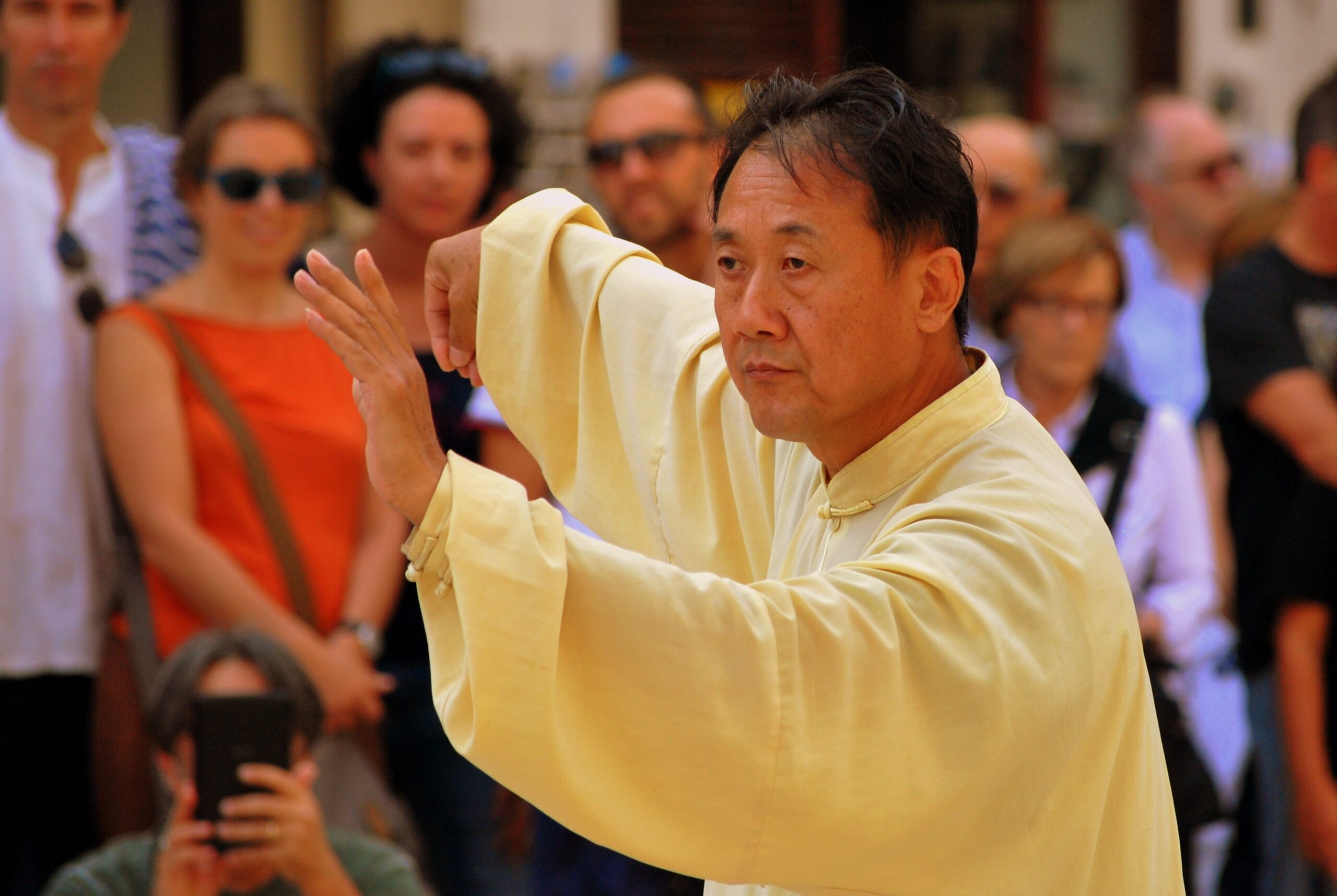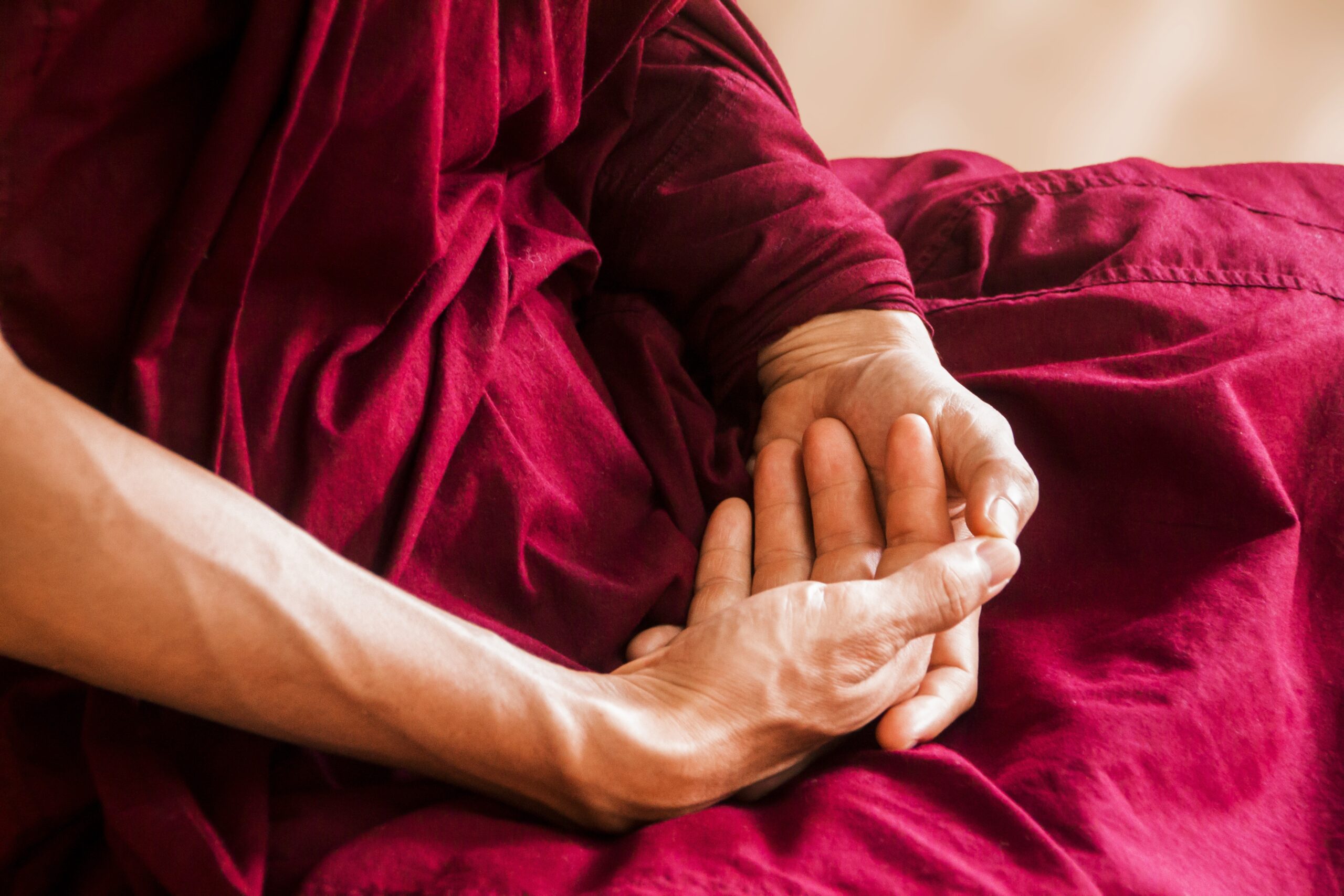Qualities of a Good Teacher or Master
A teacher or master of chi kung/qigong does not wear a badge saying, “Here I am, I know chi kung/qigong. Come learn from me!” So how would you find the right person to instruct you?
More importantly, how would you know that person is right for you? To determine who is best suited to teach you chi kung/qigong, you must have a set of criteria. Ask yourself this:
- Who decides what you want to learn, you or the instructor? Is it important for you to be an active participant in the decision making of how, when and what you should learn?
- How much time are you willing to commit to the training? Once or twice a week, or every day? One or two hours per sitting, or no specified time limit? Time off on holidays and weekends? Or whatever it takes?
- How committed are you to training diligently? Do you have other commitments that supersede your desire to learn chi kung/qigong or require that you make sacrifices or to compromise?
- Does it matter to you if you earn colored belts, reach certain levels of achievement within a designated time?
- Is it important to you to be surrounded by fancy credentials and trappings of a prestigious school? Join in competitions and public demonstrations of your martial arts ability? Collect trophies, awards and certificates?
- How important is it for you to “get your money’s worth” of learning? Are you prepared to take everything one step at a time, master the first before continuing to the next lesson? Or do you feel that you’re wasting time if you’re not learning at least one new lesson each class?
- Do you have ambitions? Do you aspire to greatness in martial arts? Are you willing to sublimate the self, surrender your ego? Be willing to be guided like a child who knows nothing?
In days of old, a highly skilled master of martial arts did not go around recruiting students for money. In fact, it was the other way around: if you wanted to learn martial arts you had to ask him for the honor to be his student.
If the master accepted you as a student, that was a rare honor indeed, because for the master, this was a huge responsibility.
He had to be able to trust you before he could impart his knowledge to you. He had to know you would not abuse that knowledge and that you were not only appreciative of what you would learn but also be ready to train diligently for it.
When I was young, my master used to tell me many stories of famous masters and how they trained their students. Many of these masters would test their students to see if they were truly committed to learning the martial art. (See Training With a Chi Kung/Qigong Master).
These tests could last many months, even years without the student ever knowing he or she was being tested! Truly, they were tests on patience, commitment, loyalty, and endurance — all of these virtues essential for a skilled martial artist.
But now, in commercialized schools of martial arts? No teacher would dare to treat their students thus. “What, beg a teacher to let me pay him to teach me? Make me undergo long arduous tests to see if I’m ready to learn? God forbid!”
In a business-oriented world where chi kung/qigong “masters” are a dime a dozen, you too can cash in on the deal by taking a few lessons, then literally paying $400 for a certificate proclaiming you a “sifu” or “sensei.” (See The Chi Kung/Qigong Industry).
With all the trimmings of a get-rich-quick businessman who can buy his way through anything, who needs to know if he’s ready to learn? Just dive in! “Faster, better, cheaper!” is the universal slogan of the business-minded West.
And even if you did happen to find a true chi kung/qigong master who could offer you the real deal, would you be willing to do it? Train for several hours a day, live, work and breathe chi kung/qigong, never mind the holidays and weekends, because they don’t exist where the master is concerned?
That is what it truly means to become a disciple of a traditional master. (See Training With a Chi Kung/Qigong Master and My Personal Profile).
I have been there, albeit reluctantly, but I didn’t have a choice. Some might call it fate or destiny, but the choice was already made by my master. He decided that I was to become his student, and he decided what I was to learn.
Even when my parents offered to pay him, he refused. He could not be bribed. The decision was his to make, his prerogative as a master. Little did I know it at the time, but because his mother’s family came from the same village as my father, he regarded my family as kin, and that is how he became my personal mentor, master and surrogate guardian.
He trained me one-on-one, counseled me, told me stories, shared his meals with me, healed me and accepted me into his family. Everywhere he went, I would tag along, and every class he taught, he would make sure I attended too. Many years later, I would help him out at his clinic, teaching classes, editing his writing, helping with the organization and marketing of his business.
To this day, our families remain close friends. Truly, our bond was deeper than most master-disciple ties.
Nothing Too Demanding of a Dedicated Pupil
My master also demanded much from my brother: he decided my brother would learn a form of praying mantis martial art that he had never taught to any other student. He made my brother kneel down before him and swear to secrecy that he would reveal the martial art to no other.
One time he gave my brother a piece of paper on which he had written some vital information. He told my brother to memorize the contents, then burn the paper.
I never got to see what was written on that piece of paper, but for the first time, I saw how frightened my brother was after reading it. Whatever was there must have been a test, because my master made no comment when my brother burned the paper without even committing it to memory.
Later, my brother told me that the paper contained vital points that could kill an opponent without ever leaving a mark on him. It even specified exactly how many hours or days it would take for the targeted person to die. My brother felt it was too much responsibility for him to assume and he did not want to learn it.
After that, my master decided to teach my brother another form of martial art even more powerful than the praying mantis. The Thunder Palm was a form of qigong martial art legacy that was orally transmitted from one master to one student in each generation.
However, the student had to be celibate for the three years of intensive training. Shortly after my brother fell in love and got married, my master stopped training him, and nothing was ever mentioned between them again of continuing his training.
If you are truly desirous of seeking out a master, remember that nothing is too demanding of a dedicated pupil. Remember also, that it is not you who chooses to learn from the master, nor is it you who decides what you want to learn.
Rather, it is the other way around: it is the master who chooses you to be his pupil, and it is the master who decides if and when you are ready to learn and what you should learn.
The Traditional Master Versus Today’s Self-Appointed Ones
Yes, there are many self-proclaimed “masters” with big fancy schools and flashy certificates.
My master was none of that. He held classes for regular students in rented gymnasiums and church basements. For his senior students, we trained in the basement of his home, and later at his Chinese medical clinic.
My master had no fancy billboard, no colored belts to give out, no fancy school decked out with expensive equipment and definitely, no marketing skills to entice buyers to his class.
People knew him by his reputation and his skill in martial arts. To this day, he never encourages any of us to join in competitions, demonstrations of martial arts, or any other ostentatious public display of our abilities.
People know him only by word of mouth. Even to this day, he never advertises his classes, yet he never fails to attract many students. I have travelled all over Canada, lived in many different cities, and no matter where I go, I always meet up with someone who knows him by name.
If you see him on the street, you would think he was the average every day joe. He is neither tall nor muscular, yet he can throw a man three times his size and weight with a mere wave of his hand.
He is plain to look at, quiet and unassuming in appearance, but when he speaks, people sit up and listen. Sometimes he is invited to give lectures; he never fails to attract a crowd. People are drawn like a magnet to his charismatic personality. He makes no claims to being a master, but all who know him recognize him as such.
Teachers of Martial Arts
If you are not prepared for that level of commitment, does it mean you have to settle for less? Not necessarily.
There are good instructors who know enough to teach their students and teach them well. In China, they go by the formal title laoshi, meaning “teacher”.
Many of these teachers have been trained in sports and martial arts academies or in universities where they obtain bachelor or even graduate degrees in martial arts. Such programs train them not only in martial arts but also in the coaching and teaching of martial arts.
Sometimes, these teachers are even better at transmitting the martial art than traditional masters, because they have undergone specialized training in preparing for a lifetime career of teaching.
Moreover, their numbers are far greater than those of traditional masters, because unlike masters of old who are the few selected disciples to inherit their master’s legacy, modern day martial arts teachers are recruited and trained in large classes.
Their skill is definitely not as good as a master, but they still have qualities that a master might not have.
A master possesses the wisdom, knowledge and skill of a dedicated martial artist. But that does not necessarily mean that he is a good teacher. Some masters are good at what they do, but they have difficulty communicating this to their students.
On the other hand, a trained teacher would know how to teach his student. Some teachers are so good at what they do that their students can even surpass their teacher’s own skill level. These teachers have their students’ respect in the same way as masters have of their pupils. (See The Teacher/Student & Master/Disciple Relationship).
My passion has always been in teaching and most of my students would say I’m good at my profession: I have two degrees in education, in addition to the specialized training that my master and later other masters have provided me.
Though I am not as good as many of the traditional masters of old, and I have few fancy certificates or trophies to boast of, I have been fortunate to acquire more than adequate training from some of the best. (See My Personal Profile).
A Guide or Mentor
When you become a student in martial arts, you submit to a higher authority. In order to learn, you must humble yourself and acknowledge that you know nothing.
A student who is too proud or too ambitious can never master chi kung/qigong. It is not the teacher or master who demands humility but the very nature of chi kung/qigong itself.
One of the first things you learn in chi kung/qigong is how to generate and circulate the vital chi energy.
But if you let ambition, pride, or ego get in the way, you cannot feel the chi, let alone generate and control its movement. The only way is to let go of the self, sublimate all desires, ambitions and ego before you can truly sense the vital chi.
Too many times, have I seen students who boast how much they have progressed in my master’s class. They tell whoever is willing to listen, how great their chi is, how sensitive they have become, and how much better their chi kung/qigong is compared to others. When my master hears this, he smiles and praises them for their “accomplishments.”
When I was young and naïve, I wondered why all these students could attain such high levels with so little effort and in so little time. Yet I trained longer hours and did not experience the levels they claimed to have experienced.
When I mentioned this to my master, he laughed and said, “Don’t worry! Keep meditating and you will surpass them all!” He knew the reality of the situation and was not deceived by their outrageous boasting.
In many ways, my master was first a mentor before becoming my teacher. He encouraged me to continue practicing when I felt discouraged or when I had so little confidence in myself.
However, my master doesn’t always teach in words, but also leads by example. Never did he boast of his own accomplishments or how good his chi energy was.
Many times have I heard him admire so-and-so masters or teachers that he met during his travels. Yet he never spoke of himself in the same way, although in some cases, I knew his martial arts and chi kung/qigong healing abilities far surpassed some of these masters that of whom he spoke.
One time in class, he mentioned that among us was a senior student who had killed, maimed and tortured many people in his former life, and would have to suffer much karma in this lifetime to make up for it.
Before I found out who that person was, I worried if it was me to whom he was alluding, until he reassured me, saying, “How can you commit murder if you can’t even bear the thought of it, let alone raise your hand to do it?”
Yet another time, he summoned me but did not speak to me directly.
At the time, I had become good friends with his youngest sister who was also training under him. Both of us being young and immature teenagers often got into one mischief after another. He never said a word — a glare in our direction was enough to stop us in our tracks!
But in my presence, he began speaking to my mother as if I wasn’t there. He told her that he knew his sister was very mischievous by nature and he had hoped that my quiet introverted personality would be a more steady influence on her. Unfortunately, instead of calming her down, I had become her cohort in stirring up mischief!
As he told my mother this, I became quite embarrassed. My master never admonished me in public, but he certainly knew how to get his message across!
In these ways, I knew him not only as a teacher but as a guide to how I should think and conduct myself. He was always there for me when I needed him most.
Much later, when I was moving to another city to study for my graduate degree, my father worried that I would be alone and unprotected. Since I rarely had the opportunity to use my martial skills in a real life situation, my father asked my master if he thought I had enough skill to protect myself.
My master chuckled and said, “If she is desperate enough, she can do anything!”
His words were very prophetic: When I was least prepared, I was able to fall back on my martial arts training. When children threw themselves at me, I never deemed them a threat to my well-being.
But when cornered by someone much bigger and more threatening, my training took over, often before I became aware of what I was actually doing.
Thus, my master was my guide and mentor in so many ways. He possessed the wisdom that inspired me to become the person I am now.
It is not every day that you can know a person who makes you aspire to greater things, let alone show you the way to spiritual enlightenment. For me, that is more important than any teacher or master skilled in the martial arts.
Teacher, Master or Mentor?
I have tried to explain as best as I could what each role entails. But ultimately, it is you who must decide what is best for you. There is no right answer to this question. It all depends on what you want out of the chi kung/qigong training and what you are prepared to do to succeed.
If you are prepared to go the lengths I went to learn from a genuine chi kung/qigong master, (See Training With a Qigong Master), then that is the path you should follow.
It is not an easy path, and it is not for everyone. But if you choose that road, you must have the intent, determination and willingness to make sacrifices to follow this master.
How would you find this master you are looking for? Set your goal. Visualize and expect that he will come into your life. If you are determined enough, you will not have to seek him out — that master will come to you.
However, if you feel that requires too much and you are not ready for such a commitment, a well-trained teacher can teach you, sometimes even better than a master can.
Since chi kung/qigong is not very hard to learn, a teacher can show you the essentials.
If you don’t have either a master or a well-trained teacher with whom to work, you can always contact me for guidance and support. Better yet, give me permission to become your personal trainer by registering into the personalized training program and I will not only be there to answer any questions you may have concerning your training but help guide you every step of the way!
With a qualified teacher or instructor, you would have more freedom to make your own decisions regarding what you want to learn, how much time you want to devote to it, and how far you want to go with it.
A well-rounded training requires that you address all three levels of chi kung/qigong development: the physical, mental, and spiritual, embodying essential components of tai chi qigong. Therefore, whether you choose to learn from a master or a well-trained teacher, hopefully, you will also find someone who can guide you spiritually as well.
So get to know your teacher: make sure that person is well-trained, humble yet knowledgeable, sincere and dedicated to leading you on the right path.




